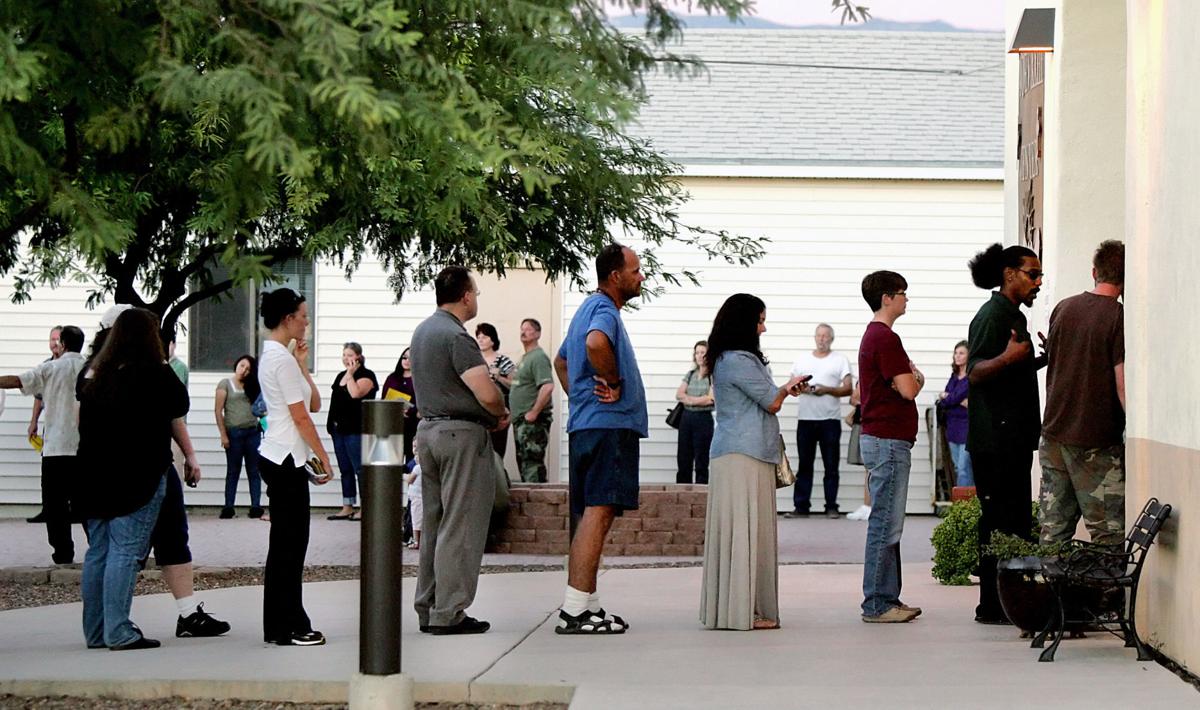PHOENIX — Federal judges are giving Democrats one more chance to convince them that people who cast their ballots in the wrong polling place should have their votes counted anyway.
In a brief order Friday, the full 9th U.S. Circuit Court of Appeals agreed to review a decision by a three-judge panel saying there is nothing illegally discriminatory about the practice by state election officials of discarding ballots from people who are not signed up to vote at that specific location. The order gave no reason for the decision to take a second look.
But the judges said late Friday they don’t intend to review it before Tuesday’s election, meaning the law remains in place for this election.
Friday’s order is at least a temporary victory for Democrats, though not an immediate one.
They contend that minorities are more likely to be disenfranchised by showing up at a polling place other than the one assigned to the precinct where they live.
But not everyone on the court is convinced. Judge Carlos Bea, writing for the majority in the 2-1 ruling earlier this week, said none of that is evidence of illegal discrimination.
Arizona law allows those who have received early ballots to either mail them in or drop them off on election day at any polling place. But those who wait to vote in person have to go their assigned precinct.
If a prospective voter’s name does not show up on the official list, they can be advised that they are in the wrong place and directed where to go. There was evidence, though, that that does not always happen.
And if the person insists on voting there anyway, he or she is given a provisional ballot, which is set aside.
If a review of records later shows the person was entitled to vote there, the ballot is tabulated. But if not, it is discarded.
The lawsuit filed by Democrats and allies contends the state should at least have to count any votes that the person would have been able to make had he or she been in the right location.
That obviously includes president and U.S. senator. But depending on the location, it could also include congressional, legislative and local offices.
To have the practice voided, though, challengers generally have to show that it is racially discriminatory. Chief Justice Sidney Thomas, dissenting in the ruling earlier this week, said that evidence exists.
“The numbers are startling,” he wrote. “The rate at which in-person ballots were rejected and not counted because the votes were cast out-of-precinct was 131 percent higher for Hispanics, 74 percent higher for African-Americans, and 39 percent higher for Native Americans than for white voters.”
Attorneys for Democrats suggested that is because minorities are more likely to be renters and move more often, resulting in confusion about where they are supposed to vote.
Bea did not dispute the numbers, but called them irrelevant and said it does not prove discrimination.
“There is no evidence in the record that minority voters were given misinformation regarding the locations of their correct precinct polling places, while non-minority voters were given correct information,” he wrote.
“Nor was there evidence that minority voters’ precinct polling places were located where it would be more difficult for minority voters to find them, than were the corresponding precinct polling places of non-minority voters.”
And Bea said nothing in the law creates an undue hardship for voters.
“It requires voters to vote in their precinct or their vote will not be counted,” he said.
“It is analogous to a registration requirement: If prospective voters do not register to vote, they cannot vote; their vote will not be counted.”
On the other side of the equation, Bea said there are legitimate reasons to limit people to voting at a specific location. He said it caps the number of people who go to any one location on Election Day and ensures that each ballot at each location lists only those races on which everyone who shows up there can vote.
Thomas, however, said the sheer magnitude of the problem suggests something is wrong.
He said that since 2006, Arizona has rejected more than 121,000 provisional ballots, 2 percent of the total.
Thomas said in the 2012 general election, more than one out of every five ballots cast on election day were provisional ballots.
“And over 33,000 of these — more than 5 percent of all in-person ballots cast — were rejected,” Thomas said. “No other state rejects a larger share of its in-person ballots.”
He said the problem is particularly acute in Tucson and Phoenix.
“The answer largely is there are relatively few polling places in those cities, and polling sites change with great frequency,” the judge said.
And Thomas said geography also can play a role.
“Many polling places are located directly on precinct boundaries,” he said, with multiple polling places often clustered together, sometimes even in the same building. And some of these polling places are not even within the voter’s actual precinct.
“Many voters cast their ballots in incorrect precincts simply because they stood in the wrong line at a multi-precinct location,” Thomas said.





